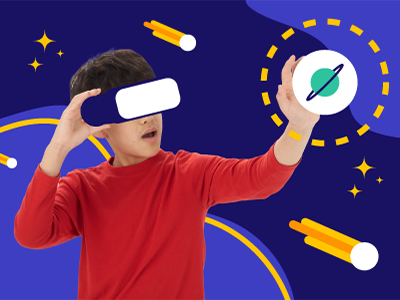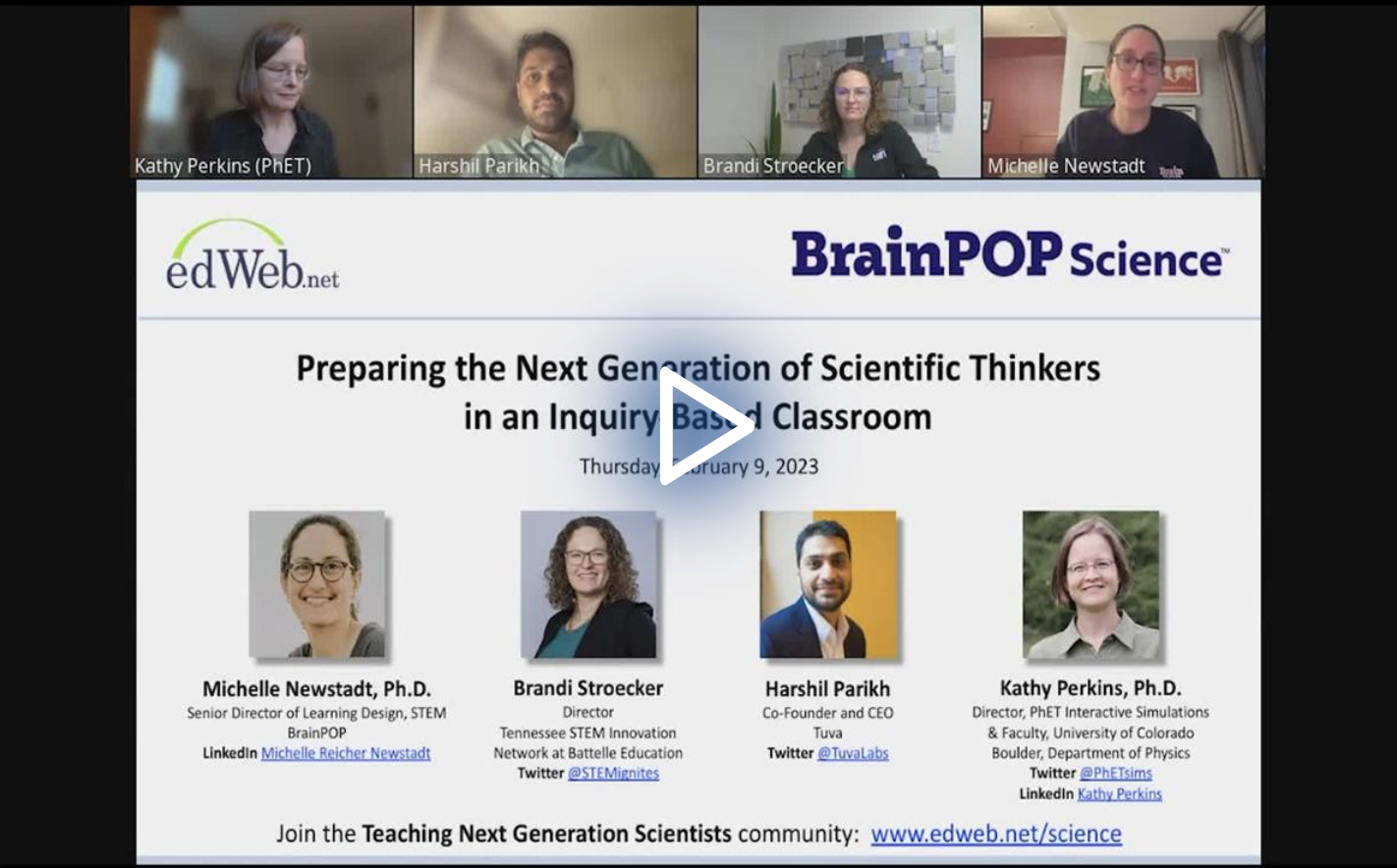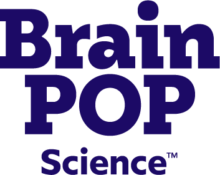Building Science Confidence with Inquiry-Based Learning
Watch the Recording Listen to the Podcast
What if you didn’t give your students a science problem to solve with specific tools that lead them to a desired response, but instead gave them a data set, questions to guide their investigation, and the choice of means to shape their analyses?
If you did the latter, you’d be on the cutting edge of student-driven inquiry in STEM classrooms, giving learners the power to navigate the scientific method on their terms.
In the edLeader Panel, “Preparing the Next Generation of Scientific Thinkers in an Inquiry-Based Classroom,” experts described and underscored the value of inquiry-based science learning, which builds measurable and transferrable skills by giving students agency to learn complex topics and practices.
Inquiry-Driven Classrooms: The “North Star” of Education
“The beauty of science,” said Harshil Parikh, Co-founder and CEO of Tuva, “is the multiple ways to get insight, to arrive at the ‘aha’ moment. And so, there isn’t necessarily one perfect graph or one perfect visualization, or one perfect analysis of the data set. And that’s the kind of science we want our students to be doing in the classroom, where they’re given something to explore or solve with the freedom to make choices and go down some wrong alleyways.”
Parikh describes the ideal inquiry-based science classroom, which gives students agency over scientific investigations. They discuss ideas, decide what to discover, collect evidence, identify patterns in observation, defend their ideas, and build connections between concepts and relationships to make meaning as they construct their knowledge.
A dataset, probing questions, and tools jumpstart students’ authentic exploration. Let’s say, for example, students explore monthly temperatures in different locations for specific periods. Rather than completing the standard pie chart, they make the call about what they want to see, analyze, visualize, and create, and how they want to document it all. Maybe they will design a dot plot or make a bar chart to chart data derived from their mathematical and computational thinking.
Through inquiry-based learning, students dig deep to find insight (answers don’t come immediately) and respond to discovery as a scientist—with curiosity and joy.
Implementing Inquiry-Based Learning: What to Do
The first step? Teachers must shift from a strict learning environment to one that presents progressive pedagogical approaches sparking scientific curiosity, enabling students to develop transferrable, future-ready critical thinking, reasoning, and problem-solving skills.
In an inquiry-based classroom, teachers immerse learners in current complex socio-scientific issues—biotechnology, the ethical use of artificial intelligence, food and energy security, biodiversity loss, and infectious disease. Inquiry-based learning invites the exploration of real-world scientific questions and their intersection with society’s needs and challenges.
As learners grapple with complex concepts, teachers can stay focused on student progress to support them as they build their science identity and confidence. In addition, teachers must ensure that students are fully engaged in the discovery process by building the habits of reiteration, feedback gathering, and deep digging to understand that the content is challenging and does not easily lead to a solution.
Administrators can support teachers by creating opportunities for inquiry-based learning and giving teachers the autonomy to, for example, present challenging essential questions to their students, try new things, and plan lessons with teachers from other content areas.
What Success Looks Like
Effective inquiry-based science programs lead to environments where students feel like scientists. As a result, learners:
- Deepen their conceptual understanding of different challenging science ideas that they then tie together
- Become creative, flexible thinkers prepared to solve complex global challenges
- Work with and exchange and debate ideas with their peers (because scientific problem solving is a social endeavor!)
- Recognize the relevance of science to their lives and the world in which they live
Inquiry-based learning allows students to explore and realize that an answer may not come immediately. That’s how science works: It’s an endeavor that requires doing a few things before arriving at insight. And while that insight is on its way, students are developing essential skills they will carry forward.
Learn more about this edWeb broadcast, “Preparing the Next Generation of Scientific Thinkers in an Inquiry-Based Classroom,” sponsored by BrainPOP Science.
Watch the Recording Listen to the Podcast
Join the Community
Teaching Next Generation Scientists is a free professional learning community that provides educators and curriculum leaders with a place to collaborate on improving classroom practices for teaching PreK-12 science.
BrainPOP offers online educational solutions that make rigorous learning experiences accessible and engaging for all. Proven to raise academic achievement, the BrainPOP brand has been trusted by educators and parents worldwide for more than two decades. Through school and district subscriptions, BrainPOP has a presence in over two thirds of U.S. districts and an estimated reach of 25 million students annually. Beloved by kids, BrainPOP provides endless opportunities for them to take agency over their learning through playful, knowledge-building content and learner-driven experiences that strengthen critical, computational, and creative thinking across the entire curriculum. The company recently launched its first subject-specific offering, BrainPOP Science, a new supplemental instructional and assessment solution for middle school classrooms. The BrainPOP team is committed to empowering kids to succeed and thrive in the classroom and beyond.
Blog post by Michele Israel, based on this edLeader Panel






Comments are closed.